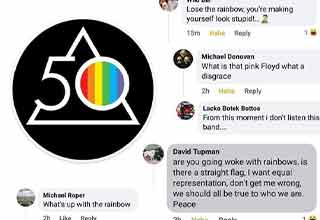
Earlier this week, Mother Earth decided to flaunt her natural beauty, boldly popping her cloud-ussy in a display worthy truly of a centerfold … in National Geographic.
On Friday, January 20, a rare “lenticular cloud,” identified by its wave pattern formed above Bursa, Turkey, giving sky-gazers one hell of an eyeful. Despite its uncanny vaginal resemblance, it seems the evidently sex-deprived overlords at BBC News had a different view on the decidedly yonic phenomenon.
UFO-like cloud forms in Turkey https://t.co/FdNwCR86hH
— BBC News (World) (@BBCWorld) January 20, 2023
— Isaac Schrarstzhaupt (@schrarstzhaupt) January 20, 2023
— phoenix’s girlhusband (@AllForThe6_4) January 20, 2023
“A rare cloud formation, that creates an optical illusion tricking viewers into thinking it looks like a UFO, has been seen in Turkey,” captioned a video shared to its site, a
After publicly (or should we say *publicly *) reporting on the topic without even vaguely alluding to the planet’s innovative take on posting hole on main, several BBC fans flocked to social media, sounding off on the evening sky’s WAL — wet-ass lenticular.
“The BBC knows “UFO” is not what most people are thinking, but is too polite to say it…” wrote one user, while another questioned if they found “the cloudoris.”
“Unidentified flying object....sure...that's easily identifiable,” added a third, while another commenter boldly announced that they “would” (which like, who wouldn’t).
Now if you excuse me, I’ll be calling my ex. Everything reminds me of her.






3 Comments